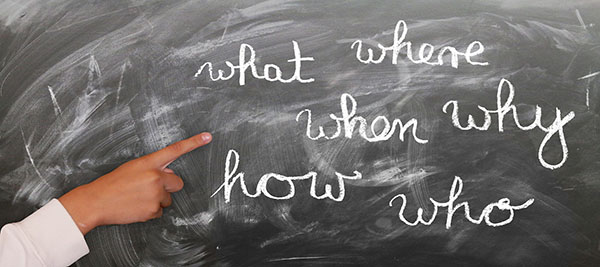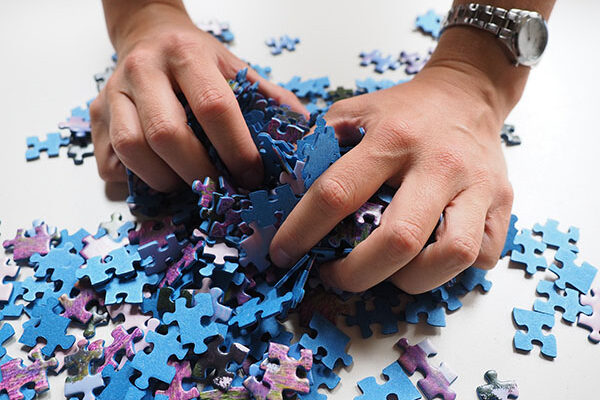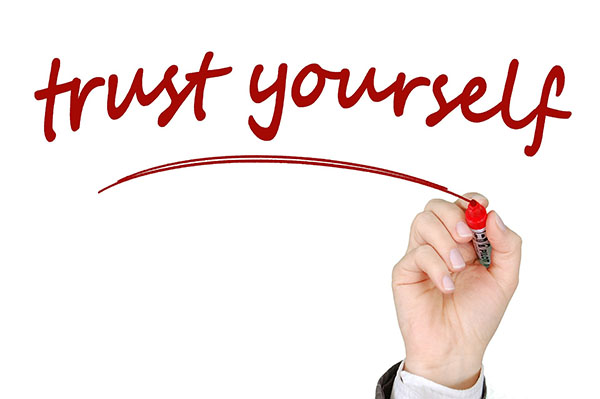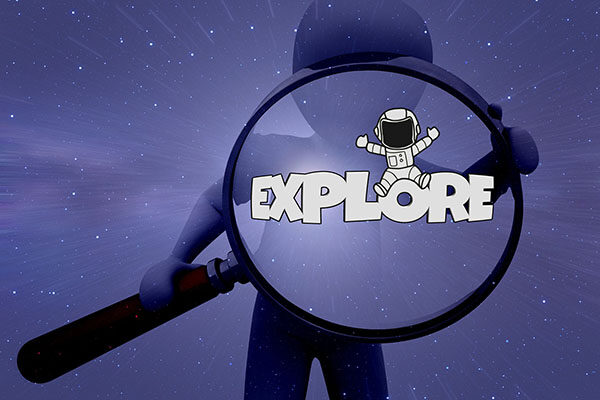
Do You Believe in Qigong?
My practice of qigong naturally comes up in conversation in social situations from time to time. Often this will be with people who have little to no understanding of or experience with qigong, beyond perhaps a few very basic impressions they may have picked up from their limited exposure to it. So naturally they ask questions to understand what I do a little better.
One type of question that some people sometimes ask is along the lines of “Do you believe in qigong?”, or “Do you have faith in your qigong practice?”. I find this type of question a bit perplexing, not only because at this point of the conversation they are usually already aware that I have dedicated the majority of my adult life to the study and practice of qigong – which would seem to be a strange thing to do if you don’t “believe” or have “faith” in it, but also because terms like “belief” and “faith” are so far outside of how I think about my qigong practice that it seems a bit foreign to even talk about them together.
I don’t think it is offensive for someone to ask questions like these, it simply reveals where they are starting from in their preconceptions of qigong. Because some of the concepts we work with in qigong are outside of their normal everyday experience and way of thinking it is easy for some people to assume that it is some type of “belief” based, or quasi-religious pursuit, and of course it doesn’t help that there are actually some people out there who do practice qigong with this mindset. But when qigong is understood well, it is very “real” and very practical. It doesn’t require “belief” or “faith” for it to work, but rather simply application of correct principles – much like anything else in life.

At this point of the conversation, I will usually try to help redirect their perspective of qigong by making comparisons. I might ask them if they believe in electricity, or gravity, or perhaps their circulatory system, basic forces, types of energy, or functions in the world around us or within our bodies that we all tend to just accept, whether we understand them or not – we know that they exist and have many effects on us. Depending on their background their understanding of how these sorts of things work can range anywhere from no understanding at all – it might as well be magic, to a quite thorough in depth understanding gained from study and perhaps professional experience. And this helps the analogy even more, because for those who don’t understand these things at all still usually accept them, and accept that other people do understand them in practical, useful, and reliable ways. For the people who do have some level of understanding they also recognize that while they understand these things now, they didn’t always understand them, and they came to that understanding through study and gaining experience – in much the same way that someone can come to understand the practical nature of qigong. This sets the frame for a useful discussion of qigong on practical terms, rather than as a mystical set of beliefs.
For people who are past this stage of mystical thinking and really starting to look at and perhaps even practice qigong with a practical point of view, this then possibly begs the question of whether there is a place for “belief” and “faith” within their study and practice of qigong. I think that there is, and in fact I think they can be really important at some stages of your qigong journey if you really want to get the most out of your qigong practice. So this article will look at four related states of mind: Curiosity, Belief, Faith, and Knowledge, and the role these can play in your qigong practice.
Curiosity
This is the starting point, when we first become interested enough to ask questions and try something out. Curiosity implies an openness to learn, a willingness to let go of preconceptions and discover what is really there. I think it is really important to embrace this state of mind and not rush on to quickly to the following ones. Spending time being curious helps us to take in more information without making too many assumptions or judgements about it, this helps to better orient ourselves to gain a more accurate understanding as we decide to go deeper and begin to evaluate what we have learned or experienced.

It will be hard to truly come to understand anything if there is no curiosity at the beginning. You may take in information, but there will be no spark to try to really comprehend it. As the saying goes – “you can lead a horse to water, but you can’t make it drink”. Curiosity provides the impetus to actually take in what you are exposed to.
Curiosity played a bit role in my own qigong journey. My first exposure to qigong was through my mother who learned just a little from a guest lecturer when she was studying naturopathy. She showed the simple exercises she learned to me and my siblings. It was fascinating! I could feel the energy between my hands! I didn’t really know what it was, and I didn’t really have any means of learning more at that time, but curiosity about that experience stayed with me, and I continued to play with those simple exercises from time to time until I later had the opportunity to learn more as a young adult.
Belief
Belief starts to come in when we start to evaluate the experiences we have had, and the information we have been exposed to. We start to try to make sense of it and to create conceptual frameworks to accommodate and extend our understanding, linking together the little pieces of understanding and experience we have gained so far to start to piece together a bigger picture of what we are dealing with. We don’t necessarily “know” a lot at this stage, but we have enough to start to form opinions of what we think may be true. We start to have beliefs about what it is that we are doing, and what we may yet discover.

You may notice that my description of this type of belief is still quite open minded. It doesn’t assume too much, but rather it is an important step in the process of sense making, taking our experience and expanding on it to work towards comprehending more fully. But we recognize that this is still a “belief” and not yet knowledge. We recognize which parts of our belief we have good evidence for, and which parts require more investigation to validate them and make our understanding more sure. We also recognize that we may be wrong about some parts of these beliefs, and we may need to re-evaluate and change them as we learn and experience more.
This is very different from the type of belief that people form without evidence, and hold onto despite evidence to the contrary arising – that type of belief is counterproductive to our process of learning, and if anything will get in the way of progressing our understanding.
Faith
This next step is an interesting one. Having been curious enough to start asking questions and exploring, and having gained enough information and experience to start forming beliefs to structure your understanding, ideally we want to develop our understanding further so that it can start to become knowledge rather than simply belief. This is where “faith” can play a very important role.
One definition of faith is the motivation or trust required to take action. It is the thing that keeps us pursuing a course of action even when we are not completely sure of the outcome. We have enough faith or trust that the effort we put in will be worthwhile and will yield the results we seek.

As mentioned previously, some of the concepts we work with in qigong are outside of many people’s previous everyday way of looking at themselves and the world around them, and some aspects of the way we work with our energy in qigong can be quite subtle and nuanced. It often takes time to develop our awareness, to tune in to our energy, and to develop skill with our mind, body, and breath to work with our energy effectively. During this process it is not uncommon to have periods where progress can feel slow, and when it may not be clear to you what you are doing with your energy. This is where having some faith in the process can carry you through and help you to keep at it long enough so that you can obtain the benefits and understanding you are seeking.
Knowledge
Eventually as we progress in our practice, some of our beliefs will start to be validated, and therefore become knowledge.
It is not uncommon for practitioners to go through phases of not really feeling or being aware of much of their energy within a practice, and then when they do start to become aware of their energy, to question whether what they are experiencing is real, or something they are making up or imagining. It is quite natural and healthy to question these experiences and our perception of them. Whenever we experience something outside of our normal experiences, it can take some time to figure out exactly what it is. As we continue to practice though, little by little our awareness becomes stronger and clearer, and we find that our experiences and perception becomes more consistent. The first time you experience a particular aspect of your energy it can come as a bit of a surprise. It is also often quite memorable as the experience is so new. It is natural to be uncertain about what exactly you have experienced. But as you have similar experiences over and over again, you start to have confidence in the accuracy of your perception, and what was once novel and unusual often actually starts to become quite mundane.

You can start to have confidence that some of the beliefs you developed are actually correct, and you can start to rely on these within your life and to further inform your practice as you continue to develop it.
The Cycle Continues
Once we have progressed from curiosity through belief, faith, and eventually to knowledge within our qigong practice, the process is to complete, but rather we discover that it is actually a cycle. Gaining one piece of knowledge opens up more to be curious about and more to discover!

In fact we may find ourselves in all of these phases of understanding at the same time about different parts of our practice and our experience of qigong. We may find that there are some things that are just on the edges of our perception and we don’t really know what to make of them yet – so we are curious to find out more. We may have parts of our practice where we are studying something new, or simply focusing more on a specific aspect of our practice – we have developed beliefs of how we think they work, which we need to work on more to validate, and we may need some faith in this process to practice consistently so that we can gain enough skill to have our own direct understanding and experience of them. And there may be other parts of our practice that we are quite confident in our awareness, understanding, and experience of.
Even within those parts of our practice that we feel have become “knowledge” it is healthy for us to maintain a level of curiosity which may lead us to discover new things. Within the world of true science what we think we “know” is always subject to change as we discover new things. And there is no reason why our “knowledge” of qigong should be any different. This doesn’t mean that our knowledge is not useful to us, but just recognizes our limitations, and keeps us open to learning more and understanding better.
Conclusion
I think the reason I find it a bit strange to talk about “believing in qigong” or “having faith in qigong”, is because often these terms are used in a way that frames qigong as something that you cannot actually have knowledge about, so therefore all you are able to do is “believe” or have “faith”. But qigong is really like any other pursuit or area of enquiry – we can gain knowledge over time through study and experience. Naturally we go through phases of belief and faith in the process of enquiry, but ultimately these are transitional phases which should lead to knowledge as we progress on our qigong journey.
It is worthwhile to understand the role of belief and faith in our process of discovery and learning, but focusing too much on these phases can be limiting and cause us to become stuck in them, preventing us from progressing beyond belief to knowledge, and crowding out further curiosity to learn more. If we are truly honest in our enquiry we will find that we often have some combination of curiosity, belief, faith, and knowledge all at the same time. This is healthy and allows us to recognize what we do and don’t know about our practice, and keeps us open to learning more so that we can develop our practice further.